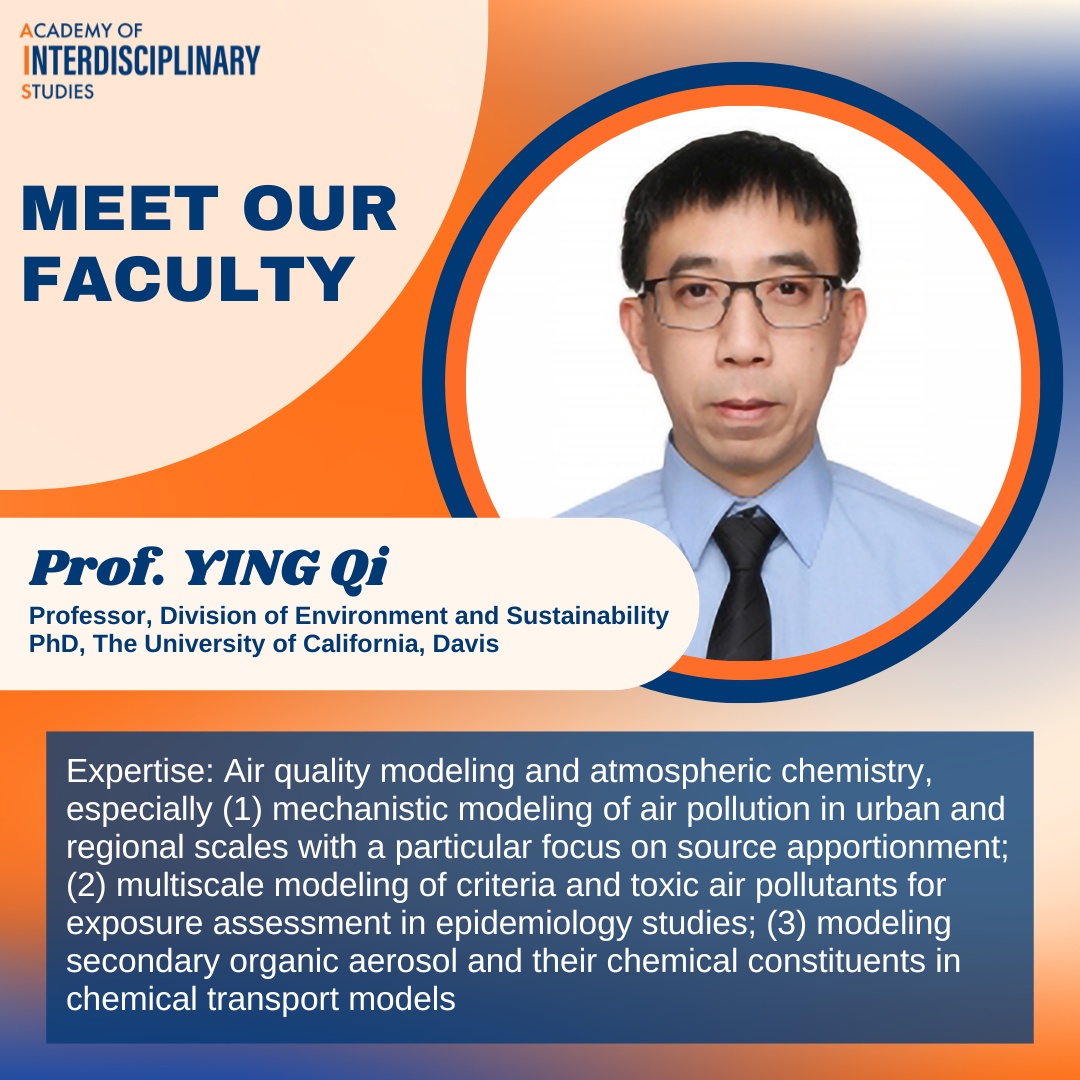From Texas to Hong Kong, discover how Prof. YING Qi, Professor of the Division of Environment and Sustainability (ENVR), uses data-driven modeling to map the invisible threats in our atmosphere. Explore how this innovative scientist is helping governments make smarter decisions for cleaner air and healthier communities!
-----
Could you tell us more about you?
I was a faculty member at Texas A&M University for more than 17 years before joining HKUST. My research focuses on the development and application of science-based, data-driven modeling tools to elucidate the impacts of emissions from human activities (and natural sources) on air quality so that local and state governments can make informed regulatory decisions to reduce air pollution and protect human health. While my initial research focused primarily on air quality issues in the United States, I have been shifting my attention to more polluted regions in Asia such as China and India for about 10 years. HKUST has a very strong team of well-known researchers in air quality and atmospheric chemistry, and I have worked with some of them during my time in the US. I am excited to join the Department of Environment and Sustainability (ENVR) within the Academy of Interdisciplinary Studies (AIS) to work on cross-disciplinary collaborations in education and research that will help address air quality issues not only in the Greater Bay Area, but also more broadly across the region.
In the upcoming spring semester, I will be teaching an undergraduate course (ENVR 1030) called Environment and Health. This introductory course provides background information on various topics such as environmental epidemiology, toxicology, and policy and regulation. It also covers the scientific aspects of various environmental problems, such as air and water pollution, and how they affect human health.
What inspired you to specialize in this line of research?
I was originally trained as an environmental engineer specializing in water and wastewater treatment. When I was about to apply for graduate studies in the late 1990s, I attended a lecture by Prof. HAO Jiming and he talked about the growing potential of computer modeling in studying air pollution problems. I then took full advantage of the Internet-connected computers at Tsinghua and connected with my Ph.D. advisor, Mike KLEEMAN at UC Davis. We built our own computer clusters using off-the-shelf components to run complex simulation programs. After that, I never looked back.
What impact do you want your work to have on society?
According to the World Health Organization, 90% of the world’s population is breathing contaminated air, and 4.2 million people worldwide die prematurely every year due to ambient air pollution. Air pollution also causes reduced crop yields by 5-12% globally, with an estimated economic loss of up to 20 billion dollars per year. Our research aims at understanding the linkage between emissions and air quality, and providing quantitative, actionable information to assist policy makers in local and state governments to protect human health and the ecosystems.
Do you have any advice for students interested in your research area?
Our research is interdisciplinary with strong emphases on atmospheric chemistry and computer programming skills. Students interested in modeling tend to pay attention to the latter but ignore the former, which will eventually limit their academic growth in the field.
Could you share a fun fact about you?
The first personal computer I used was a Laser 310 from Vtech (a Hong Kong computer company). Our elementary school had a student computer lab with a bunch of Laser 310s. Pretty advanced stuff in the eyes of a 10-year-old.





